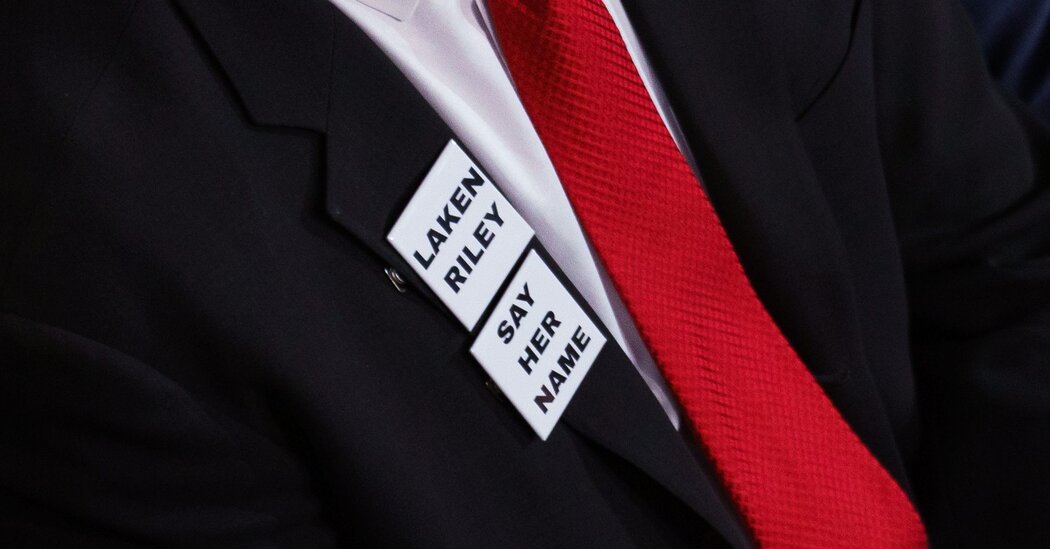The bill is named after a Georgia nursing student who was murdered last year by Jose Ibarra, an undocumented migrant from Venezuela who had previously been apprehended for crimes including shoplifting and child endangerment. Due in part to Ibarra’s arrest history, the case became a cause célèbre on the right. “The more they get away with and the more we let these criminals go, it just emboldens them, and they step it up,” said Mike Collins, the Georgia Republican who introduced the measure in the House.
If all the bill did was mandate the deportation of migrants convicted of petty theft, it would make sense for many Democrats to back it, if only because there’s so little political upside in defending the rights of undocumented shoplifters. But the bill goes much further than that. It mandates federal detention without bail for migrants who are merely arrested for any theft-related crimes, with no provision to free them if the charges are later dropped. (According to Axios, ICE is worried that to make room for those accused of theft, it would have to release others in its custody, including some considered “public safety threats.”)
The bill applies to many immigrants who are authorized to be here, including Dreamers and those with temporary protected status. And the legislation contains no exemption for minors. As Ilya Somin, a law professor at George Mason University, told me, the Laken Riley Act could mandate the indefinite detention of a juvenile child of asylum-seekers arrested for swiping a candy bar, even if he or she didn’t do it.
One of the act’s other provisions would give state officials unheard-of power over immigration policy. If the bill passes, a state attorney general could sue to block all visas to people from “recalcitrant countries” that don’t fully cooperate with the United States in accepting deportees, a list that includes China, India and Russia. This section of the Laken Riley Act may not matter much when Trump is in office; Republican attorneys general probably won’t want to challenge the president, and Democrats are unlikely to demand harsher immigration crackdowns. But if we ever have another Democratic president, it’s easy to picture the most conservative state prosecutors suing to block the issuance of visas to, say, people from China. Immigration policy would be subject to a chaotic fight in the federal courts.
Though the measure passed the House overwhelmingly last week, Democrats could still block it in the Senate, where it needs 60 votes to overcome a filibuster. Alas, that seems unlikely to happen. Last week, only nine Senate Democrats voted against proceeding to debate the bill on the Senate floor. John Fetterman of Pennsylvania and Ruben Gallego of Arizona are co-sponsors of it, and several other swing-state Democrats have already announced plans to vote for it. Fetterman told reporters last week that fellow Democrats had experienced a “blinding flash of common sense.”





